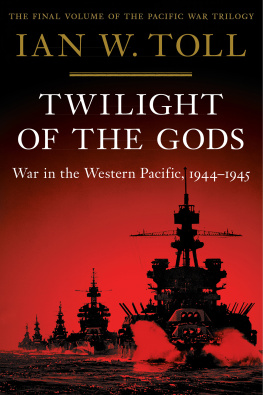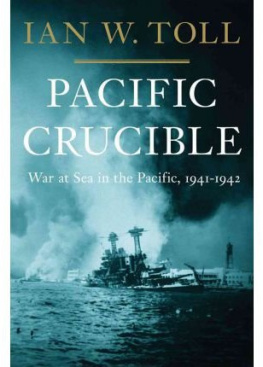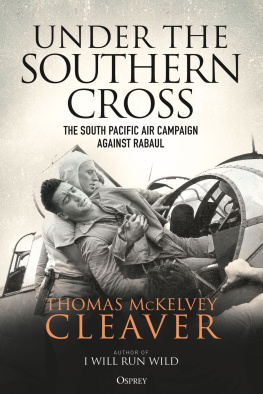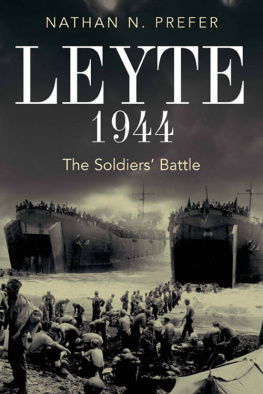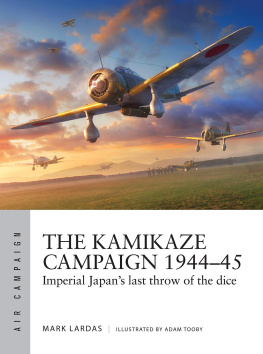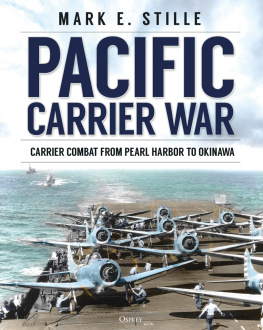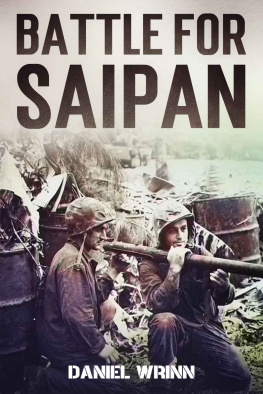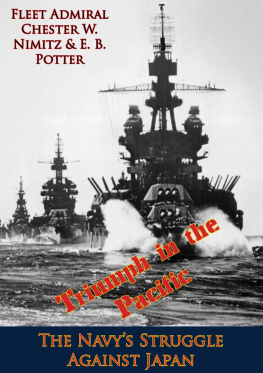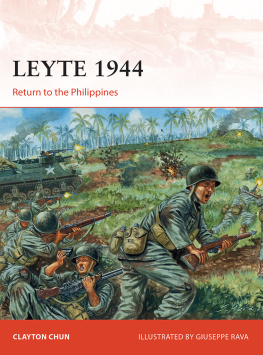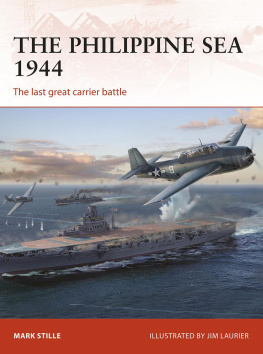
Twilight
of the
Gods
War in
the Western Pacific,
19441945
IAN W. TOLL

W.W. NORTON & COMPANY
Independent Publishers Since 1923
Dont argue with people who buy ink by the barrel.
AMERICAN APHORISM, ORIGIN UNKNOWN
Franklin Delano Roosevelts rapport with the press had deteriorated sharply since his first presidential term in office. Back in those honeymoon days of 1933, the newly sworn president had disarmed reporters with a fond and familiar mannercalling them by their first names, bantering about trivialities, writing birthday notes, and inviting their entire families to White House parties. His twice-weekly press conferences had been freewheeling and uninhibited. Filing into the Oval Office, the reporters were greeted by a cheerful, big-headed man in a well-worn, slightly rumpled suit, seated in his wheelchair behind a large mahogany desk. He was usually clutching a cigarette, and flecks of ash clung to the fabric of his sleeves. He took any question as it came, verbally and off the cuff. He kept the atmosphere light and mirthful. The president might remark that a reporter appeared hungover, for example, and ask the room for its opinion; or he might ask the security detail to confirm that a particular reporter had been frisked. He joked that he was running a schoolroom, and spoke to the journalists as if they were not especially bright grade school students: No, my dear child, you have got that all wrong. from the reporters.
The president did not always reply directlyor truthfully, or at allbut he tolerated follow-up questions and engaged in informal back-and-forth exchanges. White House stenographers recorded every word of his 998 press conferences, including the small talk and badinage that opened each session. The transcripts run to many thousands of pages and occupy more than four cubic feet at the FDR Library in Hyde Park, New York.
By 1941, the first year of his third term in office, there were still flashes of that old warmth and witbut now, more than in years past, White House reporters saw Roosevelt as a quicksilver character, temperamental and even inscrutable, a man of unfathomable depths. In one moment he lit up the room with his famous high-wattage smile; in the next he turned sour and snappish. It was not in FDRs nature to shout, or even to raise his voice, but there was often a cantankerous undercurrent to his banter, and if he did not like a question he was liable to give a reporter the rough side of his tongue. According to Merriman Smith, a United Press correspondent, the president could be as rough and tough as a Third Avenue blackjack artist, or he could be utterly charming, disarming and thoroughly likeable. It just depended on the question, who asked it and how Mr. Roosevelt felt when he got up that morning.
Calling out individual newsmen to rebut stories they had written, he pressed home his cross-examinations with the zeal of a courtroom litigator. Intolerant of euphemisms such as error or inaccuracy, FDR accused individual reporters of printing liesor if that wasnt clear enough, plain lies or deliberate lies.
At a press conference in February 1939, when questions implied that FDR was attempting to circumvent congressional restrictions on arms shipments to Europe, he launched into a tirade. The American people are beginning to realize that the things they have read and heard... have been pure bunkb-u-n-k, bunk; that these people are appealing to the ignorance, the prejudice, and the fears of Americans and are acting in an un-American way.
Asked whether he believed the offending papers had deliberately misled their readers, FDR answered with a question of his own.
What shall I say? Shall I be polite or call it by the right name?
Call it by the right name, said one of the newsmen.
Deliberate lie.
He read four or five newspapers each morning, usually before rising from bed. Roosevelt was a pious man who rarely swore, but the morning editions often put him into a seething fury, prompting a damn, or in severe cases a goddamn. As he read, his face darkened, his chin hardened, and his eyes glittered wrathfully. He might tear the offending story from the paper and bring it with him to the Oval Office, where he would thrust it into the hands of his press secretary, Stephen T. Early, complaining: Its a damn lie from start to finish. He became convinced that most of the American press85 percent was the proportion he often citedwas functioning as a mouthpiece for the embattled oligarchy. The Tory press, said Roosevelt, was shrewd, malevolent, and unscrupulous. It was owned and controlled by a cabal of rich conservatives who hated him personally and served up a daily diet of vitriol aimed at him, his political allies, his staff, and even his family.
In the pantheon of FDRs archenemies, four newspaper moguls sat on high pedestals. William Randolph Hearsts national newspaper chain often published identical editorials denouncing Roosevelt and his policies. Media analysts correctly surmised that the invective was orchestrated by the chief himself, who wired instructions to his editorial rooms from his garish castle at San Simeon on the California coast. Robert R. Bertie McCormick, publisher of the Chicago Tribune, openly despised Roosevelt and everything he stood for, and his paperthe second citys leading daily and one of the nations most widely read newspapersdisparaged the administration without even the pretense of objectivity. McCormicks cousin, Joseph M. Patterson, was founder and owner of the New York Daily News, the nations first tabloid. With its big-photograph format and sensationalist coverage of crime, sports, and sex scandals, the Daily News prospered throughout the Depression years, and its circulation eventually overtook that of the New York Times. Patterson had once called himself a socialist, and was initially sympathetic to the New Deal, but in 1940 he threw in with the isolationist movement and his paper turned sharply against FDR. Eleanor Cissy Patterson, Josephs younger sister and Bertie McCormicks cousin, was an eccentric and profane misanthrope who bought two Washington newspapers from Hearst and merged them into one: the Washington Times-Herald. By the late thirties, the Times-Herald had won the capitals circulation battle and was one of the most profitable newspapers in the country. It was a blatantly partisan broadsheet that attacked the administration nearly every day, and sometimes several times per day in as many as four daily editions. Scurrilous anti-FDR editorials, signed Cissy Patterson, appeared on the front page. Newsboys hawked the paper on every downtown corner, and one or two were usually found shouting the latest headlines from the sidewalk just outside the White House gates.
None of the four was a stranger to FDR. McCormick and Joseph Patterson had been his Groton schoolmates, and he and Eleanor had been friendly with Cissy Patterson when she was a young debutante on the cotillion social circuit. Earlier in his career, Roosevelt had counted Hearst as an ally and had even called him a friend. His antipathy toward them, and theirs toward him, was intimate and deeply personal. Since three of the four were blood relatives, and the fourth (Hearst) was linked to the others by long-standing friendships and business dealings, FDR tended to regard the Hearst-McCormick-Patterson newspapers as a united front. But in 1940, as he ran for an unprecedented third presidential term, about three-quarters of all American newspapers opposed his bid for reelection, and FDRs relationship with the press descended to its nadir. On the campaign trail, Roosevelt often went out of his way to denounce the newspapers, charging that they were failing to perform their vital role in American democracy. The press, he said, was a profit-seeking enterprise that found sensationalism and gossip more lucrative than sober, accurate reporting, and was polluting the nations civil discourse. That fall in the
Next page
